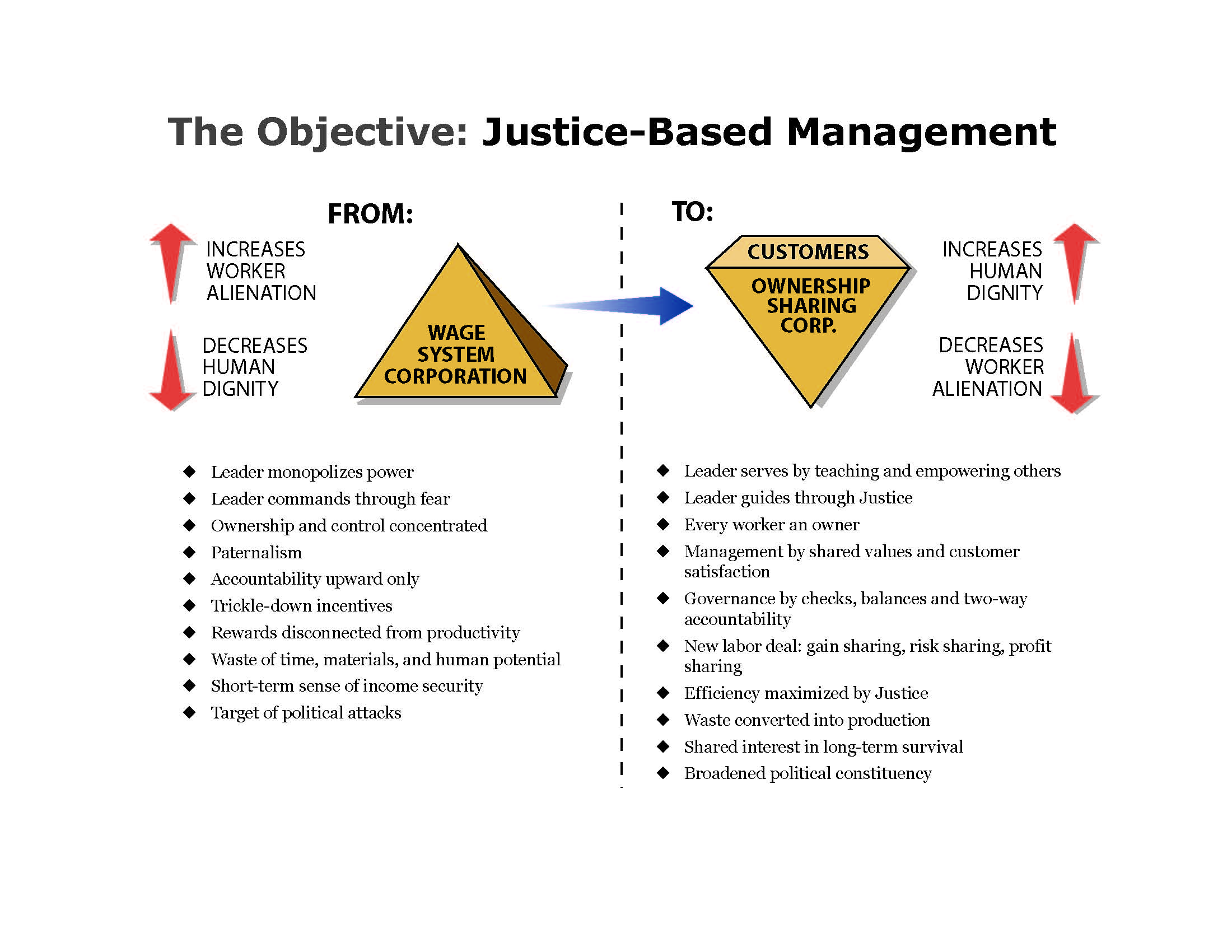Justice-Based Leadership
What is Justice Based Leadership?
Justice-Based Leadership (JBL) is a philosophy that aligns individual and group values, mission, actions, structures, and systems around a shared understanding of, and adherence to, clearly defined and universal principles of social justice and economic justice. It relates to the development of an individual business or organization, as well as to a larger economic or political system.
To value oneself and, at the same time, subordinate oneself to higher purposes and principles is the paradoxical essence of highest humanity and the foundation of effective justice-based leadership.
To understand the corruptibility of concentrated power (including within oneself as the leader), and to institutionalize effective checks-and-balances within the system to prevent such concentration, is the responsibility of a justice-based leader.

JBL encompasses concepts of “servant leadership”, “transformational leadership”, and “principle-centered leadership,” all of which recognize the impact of personal and organizational values on the behavior, performance and development of the leader, other members, and the organization as a whole.
Reflected in the JBL philosophy are three aspects of servant-leadership: trust, appreciation, and empowerment of others. The four components of transformational leadership embodied in JBL are: charisma or idealized influence (the leader as role model), inspirational motivation, intellectual stimulation, and consideration of the individual. As expressed in JBL, the components of principle-centered leadership include: personal character, competence, and commitment to natural law principles. Principle-based leaders build these principles into the center of their lives, their relationships with others, their agreements and contracts, and their mission statements and management processes.
The goal of JBL is to center all aspects of our lives (including our family, civic and work lives) on correct principles and for every person to develop a rich internal power, as well as personal economic power through capital ownership. Empowerment of others, a fundamental objective of Justice-Based Leadership, comes about when both principles and practices of justice are understood and applied at all levels of an organization or society.
Justice-Based Leadership is a key part of Justice-Based Management. It recognizes that the distribution of direct capital ownership and the rights of private property directly impact the distribution of economic and political power and the degree to which social and economic justice exist within a system.
The challenge to justice-based leaders is to promote a culture that develops, enriches and empowers each member of the group and thereby strengthens the whole. Justice-based leadership drives a dynamic process that seeks constantly to create structures, systems and institutions that decentralize power, and that teach, empower and inspire every person to become a justice-based leader.
